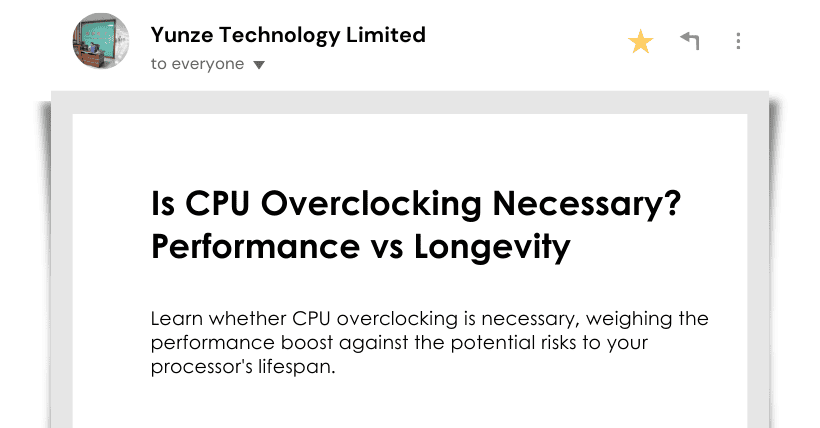Overclocking is certainly not a necessity. It’s optional—you can choose to overclock if you want, or not. Your computer will work perfectly fine without overclocking, so it’s not essential in the way that, say, plugging in the power cord is. Without power, the computer won’t even turn on, so power is a necessity. Overclocking, however, is a choice.
01
Two Main Reasons for Overclocking
- Maximizing Performance (Getting the Most Out of the Hardware)
- Pushing Limits (For Enthusiasts and Extreme Tinkering)
1. Maximizing Performance
When people overclock to maximize performance, it’s about squeezing more out of the hardware they’ve already bought. AMD CPUs, for example, generally support overclocking across most of their lineup. In my opinion, small overclocking is worthwhile—not overclocking can feel like leaving performance on the table.
Take the Ryzen 5 3500X paired with a B450M MORTAR MAX motherboard as an example. Without overclocking, the CPU runs at a maximum of 3.9 GHz under load. However, with overclocking, you can push it to 4.3 GHz. That extra 0.4 GHz can result in a significant improvement in benchmark scores. Even if you’re not a benchmark enthusiast, that small overclock helps mitigate one of AMD’s weaknesses—lower clock speeds compared to Intel. While the improvement in gaming might just be a slightly higher minimum FPS, it’s still extra performance, which is always good.
Regarding concerns over reducing the CPU’s lifespan by overclocking to 4.3 GHz, there isn’t solid data on how much overclocking affects the longevity of a 3500X. Plus, 4.3 GHz is not pushing the CPU to its limits, so it’s unlikely to cause any issues within a few years.
For Intel CPUs, the perspective is a bit different. Since Intel doesn’t offer free overclocking on all CPUs, overclocking isn’t as necessary. But even then, a small investment can unlock noticeable performance gains. Take the 9600KF, for example. Pairing it with a B360 motherboard without overclocking is a perfectly fine choice, but pairing it with a low-end Z390 or a second-hand Z370 for overclocking can give a nice performance boost without breaking the bank.
In short, AMD offers free overclocking, so not using it can feel like wasting potential. Intel doesn’t, but even so, investing in a small overclock can be a worthwhile choice.
2. Pushing Limits (Enthusiast Territory)
For hardware enthusiasts, overclocking is about more than just performance—it’s about the thrill of pushing boundaries. Whether it’s liquid nitrogen cooling on top-tier motherboards for extreme overclocking or building budget gaming PCs with overclocked parts, enthusiasts enjoy the process of tweaking and tinkering.
For these top-tier players, overclocking might feel essential to their experience. If you’re not overclocking, are you really an enthusiast? This mentality drives many to experiment with overclocking even if the gains in real-world usage are small.
However, most people aren’t hardcore overclockers. Many users just want a stable, simple system that works without needing constant tweaking. While some people buy high-end motherboards as a tribute to the extreme overclocking community, the reality is that after a little experimentation, most return to stable, default settings.
02
Conclusion
Overclocking isn’t necessary—it’s a choice. For enthusiasts, it’s about pushing limits, but for most users, overclocking is more about getting a bit more performance out of the hardware they already own. It’s not the most critical factor in determining whether a system is good or bad. CPU, GPU, RAM speed, and other factors matter more when assessing overall performance, and for most users, a stable, reliable system is the priority.

Disclaimer:
- This channel does not make any representations or warranties regarding the availability, accuracy, timeliness, effectiveness, or completeness of any information posted. It hereby disclaims any liability or consequences arising from the use of the information.
- This channel is non-commercial and non-profit. The re-posted content does not signify endorsement of its views or responsibility for its authenticity. It does not intend to constitute any other guidance. This channel is not liable for any inaccuracies or errors in the re-posted or published information, directly or indirectly.
- Some data, materials, text, images, etc., used in this channel are sourced from the internet, and all reposts are duly credited to their sources. If you discover any work that infringes on your intellectual property rights or personal legal interests, please contact us, and we will promptly modify or remove it.








